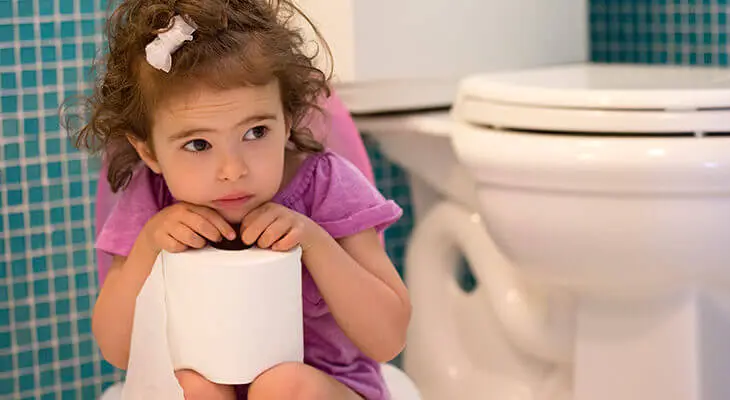Constipation is a common concern in kids. Bowel patterns vary from child to child even as they are doing in adults. What’s normal for your child could also be different from what’s normal for an additional child.
Most youngsters have bowel movements 1 or 2 times each day. Other children may go 2 to three days or longer before passing a traditional stool. As an example , if your child is healthy and has normal stools without discomfort or pain, having a movement every 3 days could also be her normal bowel pattern.
Children with constipation may have stools that are hard, dry, and difficult or painful to pass. These stools may occur daily or be less frequent. Although constipation can cause discomfort and pain, it’s usually temporary and may be treated.
Constipation may be a common problem in children. It’s one among the most reasons children are mentioned a specialist, called a pediatric gastroenterologist.
Here is information about constipation and its causes, symptoms, and coverings , also as ways to stop it.
What causes constipation?
Constipation frequently occurs for a spread of reasons.
- Diet.
Changes in diet, or not enough fiber or fluid in your child’s diet, can cause constipation - Illness.
If your child is sick and loses his ¬appetite, a change in his diet can throw off his system and cause him to be constipated. Constipation could also be a side effect of some ¬medicines. Constipation may result from certain medical conditions, like hypothyroidism (underactive thyroid gland). - Withholding.
Your child may withhold his stool for various reasons. He may withhold to avoid pain from passing a tough stool, which may be even more painful if your child features a bad diaper dermatitis . Or he could also be handling issues about independence and control—this is common between the ages of two and 5 years.
Your child can also withhold because he simply doesn’t want to require an opportunity from play. Your older child may withhold when he’s faraway from home, at camp, or at college , because he’s embarrassed or uncomfortable employing a comfort station . - Other changes. generally , any changes in your child’s routine, like traveling, weather , or stressful situations, may affect his overall health and the way his bowels function.
If constipation isn’t treated, it’s going to worsen . The longer the stool stays inside the lower intestinal tract, the larger, firmer, and drier it becomes. Then it becomes harder and painful to pass the stool. Your child may twiddling my thumbs his stool due to the pain. This creates a vicious circle .
What are the symptoms of Constipation?
- Symptoms of constipation may include:
- Many days without normal bowel movements
- Hard stools that are difficult or painful to pass
- Abdominal pain, like stomachaches, ¬cramping, or nausea
- Rectal bleeding from tears, called fissures
- Soiling
- Poor appetite
- Cranky behavior
- You may also notice your child crossing her legs, making faces, stretching, clenching her buttocks, or twisting her body on the ground . it’s going to look as if your child is trying to push the stool out, but instead she’s trying to carry it in.
How is constipation treated?
Constipation is treated in several ways. Your child’s doctor will recommend what’s best for your child’s situation. In some cases, your child may have to possess a medical test before your child’s doctor can recommend treatment. for instance , your child’s doctor may have to seem inside your juvenile body and x-rays could also be wont to create these images. In most cases, no tests are needed.
What is Encopresis?
If your child withholds her stools, she may ¬produce such large stools that her rectum stretches. She may not feel the urge to pass a stool until it’s too big to be passed without the assistance of an enema, laxative, or other treatment. Sometimes, only liquid can pass round the stool and leaks out onto your child’s underwear. The liquid stool may appear as if diarrhea, confusing both parent and pediatrician, but it isn’t . This problem is named encopresis.
Dietary changes leading to Constipation –
- Babies.
Constipation is never a drag in younger infants. it’s going to become a drag when your baby starts solid foods. Your child’s doctor may suggest adding more water or juice to your child’s diet. - Older children.
When a toddler or teen is con¬stipated, it’s going to be because his diet doesn’t include enough high-fiber foods and water. Your child’s doctor may suggest adding higher-fiber foods to your child’s diet and should encourage him to drink more water. These changes in your child’s diet will help get obviate abdominal pain from constipation. - Medicine
In some cases, your child’s doctor may prescribe medicine to melt or remove the stool. Never give your child laxatives or enemas unless your child’s doctor says it’s OK; laxatives are often dangerous to children, if not used properly. After the stool is removed, your child’s doctor may suggest ways you’ll help your child develop good bowel habits to stop stools from backing up again.
If you need further help regarding constipation in pediatrics treatment for your child’s health, visit our Pediatrics Department or Book an Appointment online.

